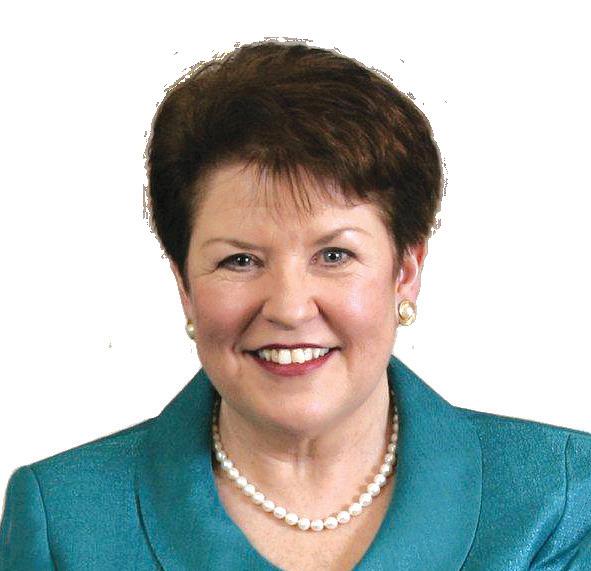
3 minute read
LEADERSHIP Karen Vernal
Talk it through The art of a healthy conversation
— Brené Brown
LET’S IMAGINE a company, we’ll call it “Better Inc.,” as a fourth-generation highly successful family-owned manufacturing business. Employees at the company describe their leaders as living the company values of integrity, compassion, customer care and support for employees.
For the first time in its history, the company is in search of a new CEO who will not be a family member. Two candidates have emerged, each with seemingly successful leadership experience. However, their styles of leadership are distinctly different, creating a need for candid conversations among family members who have strong beliefs about who the best leader will be. Two of the five family members strongly support Darian Block for his perceived financial acumen, while three support Janine Smith for her collaborative style and commitment to employee development.
The family engages the services of a consultant/facilitator to create a safe space for them to have meaningful conversation.
REFLECTION
The facilitator asks the siblings to begin with a few moments of quiet reflection to appreciate their strong family history and the generations that came before them. (This simple strategy of silence has proven to reduce tension and invite focus.)
CHECK-IN
Each member was then asked to “check in” by sharing an example of success they had in past decision making and why. Without exception, the siblings reveal that they were successful when
they were truly willing to listen to one another.
AGREEMENTS
Family members developed agreements for their conversations (belief that each has good intentions, avoid sarcasm, listen to one another to understand vs. to rebut.)
They also affirmed their values of integrity, compassion, customer care and support for employees before talking about each of the candidates.
PREPARATION/INFORMATION
Darian, the first candidate, started a number of businesses with a large footprint in manufacturing. He has a big personality and is capable of selling others on his ideas. There are, however, identified concerns. He has a propensity for stretching the truth. He surrounds himself with friends and business associates who have questionable reputations. It is hard to get a read on Darian’s ability to demonstrate compassion, a strong value in the family-owned business. He tends to admire authoritarian leaders and often expresses to others that he alone solves the problems in his businesses.
Nevertheless, he presents himself as fully able to ensure the financial success of the family-owned business, a growing concern for family members during this pandemic.
Janine Smith, also a candidate for the CEO position, is admired by her colleagues for her integrity and her capacity to empathize with others. Janine has the ability to collaborate and values diverse opinions.
It is clear that Janine has garnered the support of trusted business leaders across the state. In whatever leadership role she assumed, she created a team of experienced leaders to join her in crafting future business vision and execution.
Developing members of her team and supporting employees were demonstrated values in her previous leadership roles. However, Janine has not had the years of experience in business that Darian has had.
MAKING THE DECISION
Once family members heard the stories of both candidates, they needed to determine what leadership qualities were most important for the future success of the business. Did they believe that a leader who demonstrated the values held by the company offered the most promise? Or, did they believe that the candidate who promised financial security was best for the company?
Fears of two family members who thought that Janine might not have the ability to secure the future financial success for the business diminished as family members discussed how financial success would not likely be sustained if their values were not. Janine became their collective choice for the CEO position, as they honored their agreements and listened deeply to one another, focusing on what was best for the company.
CLOSING/CHECK-OUT
The meeting ended with each family member expressing gratitude for the ability to have the conversation with open hearts and open minds. They each felt listened to and valued by the others.
LESSONS LEARNED
Healthy conversation requires a commitment to listen deeply for understanding. Strategies to support healthy conversation include: reflection, check-in, preparation/information and check-out.

“Daring greatly means the courage to be vulnerable. It means to show up and be seen … to ask for what you need … to talk about how you are feeling. To have the hard conversations.”
— Brené Brown
KAREN VERNAL
Karen Vernal is executive vice president and chief dreamer for Vernal LLC, a Milwaukeebased leadership and human resources consulting firm. She can be reached at karen@ccvernal.com.










